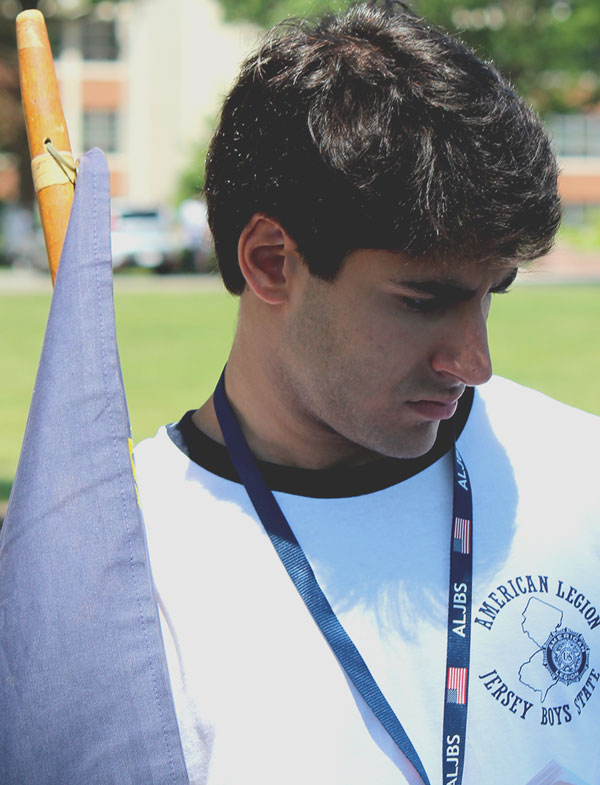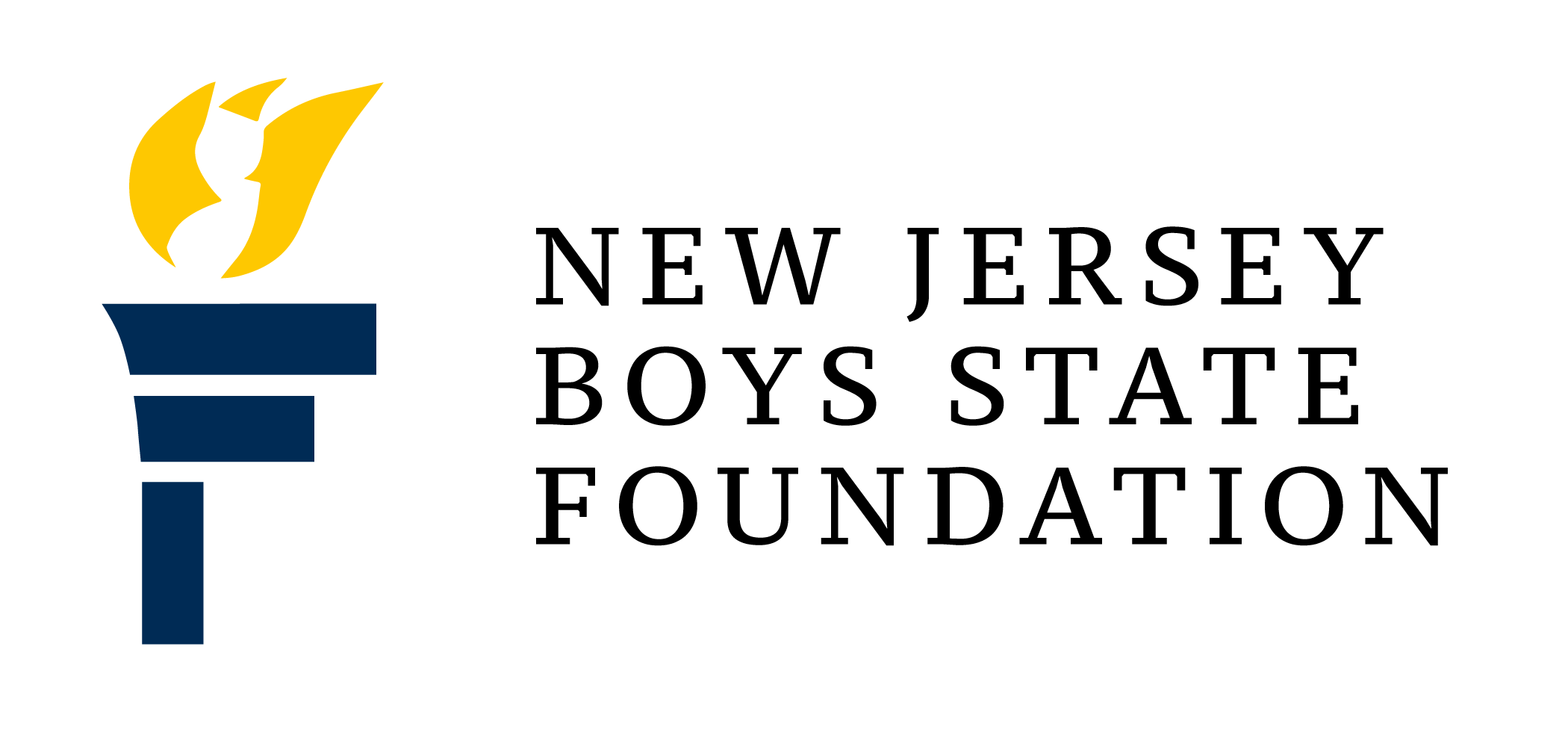News Archive

"Tell us a bit about yourself."
There are few more ridiculous interview questions to ask a person than this. Who of us can answer it well? What is answering it well? Do you list your interests? Do you rifle off your dossier, hoping that they haven't examined the piece of paper on the table in front of them? Do you express an opinion, perhaps that you're happy to be here and are eager to do good work? What do you want to communicate to the other person? What do you want the world to know of you—in thirty seconds or less, of course.
Thirty seconds. How are you supposed to define yourself in thirty seconds? How many of us can barely define ourselves with thirty years of actions, let alone thirty seconds of words?
It might seem a bit unfair that we ask each delegate this very question within hours of arriving at Boys State. Once delegates are split into groups of sixty called "cities," they meet together and introduce themselves. Basic information is exchanged. Rise up. State your name, hometown, what you do at school, and what you want to do this week. Sit down, self-definition complete. Sixty faces, sixty names, sixty definitions, all within half an hour, with no word of warning.
It's a daunting task. Telling others who you are when you've never done it before is a challenge on multiple levels.
There are three basic levels of conflict: man vs. nature, man vs. man, and man vs. self. Man vs. nature is a struggle against odds and systems. Man vs. man is conflict due to competing interests. Man vs. self is a challenge to define oneself, with all the disparate desires, decorum, and devilishness that make a human a complex thing. As the level moves inward, the conflicts get more personal and more difficult. Man vs. nature is heroic. Man vs. man is messy; each side can be in the right. Man vs. self is a titanic struggle hidden deep in the mind and actions of each person.
All three of these challenges happen this week at American Legion Jersey Boys State. There's challenges with nature: fatigue, weather, the stress of unfamiliarity, the challenges of the ALJBS political system, etc. We will go home and tell tales of how we beat these challenges! It will sound awesome! We will have done the impossible, and that will make us mighty.
There's also challenges with fellow man: how to solve the complex problems given to each city, county, and state; how to disagree with others; how to work with others (including those you disagree with); and how to make new friends. These challenges happen throughout the week. They are not as glamorous as the challenges with nature but they form the backdrop of our ALJBS society. They will be shared among groups but different for individuals
But the hardest challenges of the week are the ones with self: who are you? What are you? What do you want to become? What tenets will you build your life around?
This is what "tell us about yourself" starts to poke at. To each delegate, we pose the question: who are you? Delegate, define thyself, probably for the first time in thine life. No pressure.
And yes, this is a bit unfair to people who are not ready for it. But as longtime ALJBS speaker Chuck Wiley stated, "Life isn't fair. Get used to it." This question is one the delegates will have to answer soon. We merely ask it a little ahead of time. We force the delegates to become ready for it.
The ALJBS program sits at a unique point in a delegate's life, at the beginning of the transition to full-fledged adult. It's a point of deep personal change. It's the point when incubating influences start to lose their sway and a distinct adult emerges.
In a year, these delegates will be on their own at colleges and universities. They will be fending for themselves, making decisions from the mundane to the profound. They will be forced to answer "Who am I?" on a daily basis with their actions.
This week, the delegates will be forced to do the same thing. They will have to define who they are and take responsibility for how they behave as part of this mythical fifty-first state. They will have to find roles—athletes, politicians, writers, workers, administrators, and more—and learn what it means to fulfill those roles with their talents. They will have to follow a schedule (which increasingly becomes their responsibility).
And, of course, they will have to develop their identity alongside their fellow delegates. Each city becomes its own society with its own leaders and followers. As delegates grow into their own persons, they grow alongside and with others. By the end of the week, sixty people who do not know each other at the beginning will become friends as part of their own mini-civilization.
Can you tell why we love this program? It's because there's so much to see here. This is the age of opportunity, the time when everything is fresh and new and changing. We are the stage for it. We are the force to roll these rocks down the hills and paths they will go. We provide the venue, the agenda, the guidance. We sit back and watch it all happen, amazed and overjoyed at the young men who step towards their destiny.
This is a week that shapes the future. That isn't just a slogan we stumbled on. That's what we, ALJBS, do. That's what we, ALJBS, are. We are a politics program, a transition to adulthood, a sociology experiment, a marathon, an opportunity all at once. We have a history of developing the youth of this state to become better citizens and leaders. We proudly claim that we shape the future because we see it each year when dozens of ALJBS delegates return as staff and speakers (at ALJBS), governors and senators and lawyers and businessmen and soldiers (outside of here), demonstrating the effects of lives transformed by this program.
Each session, we get to watch the people that stumble over the "tell us about yourself" question grow a little more comfortable in their own skin by the end of the week. It's a wonderful part of the program. The best part of the program is getting to see the people that stumbled over the "tell us about yourself" question on their delegate year come back and show us how much they've changed.
This week, we'll get to to watch a thousand delegates start figuring out who they are, how they relate to each other, and what they want to be. There will be leadership, relationship, destiny, and legacy. We'll tell you all about it. After all, we know how it's done.


